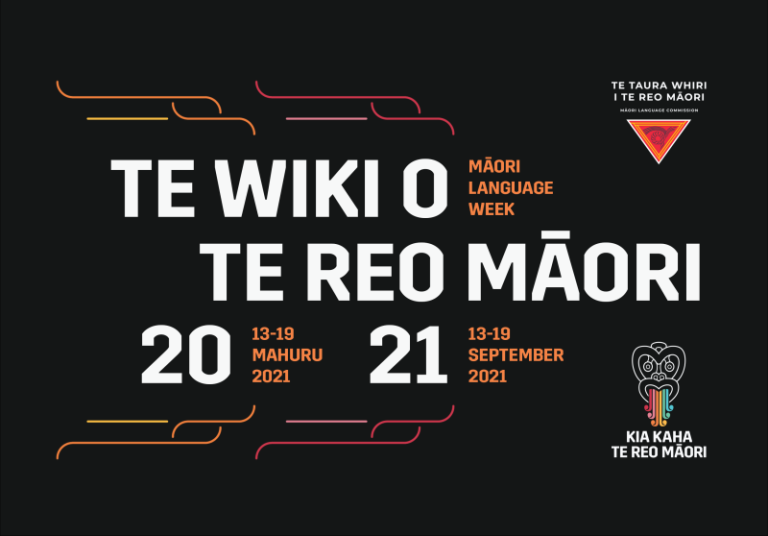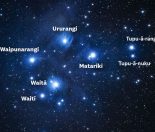Te Wiki o te Reo Māori – Māori Language Week is a week where New Zealanders both here and overseas are encouraged to recognise and practice the Māori language – Te Reo.
When is Māori Language Week?
In 2023, Te Wiki o Te Reo Māori or Māori Language Week is celebrated from 11 – 18 September 2023.
Māori Language Week is a shifting celebration, which means it is not held on the same week every year.
History of Māori Language Week
In the early 1970’s it was becoming obvious that less and less people in New Zealand were able to speak Māori.
Many people were concerned by the state of decline, and signed a Māori language petition which was organised, in part, by the Te Reo Māori Society. In total, 30,000 people signed the petition, which was presented to Parliament on 14th September 1972.
Strength for an endangered language comes from its status, people being aware of how to support revitalisation, people acquiring and using it and from the language having the right words and terms to be used well for any purpose.
This day become recognised as Māori Language Day, and in 1975 was responsible for the formation of Māori Language Week.
What is the purpose of Māori Language Week?

Māori Language Week is a week for all New Zealanders to recognise Maori as an official language in New Zealand.
While learning the language is not compulsory, Te Reo is a special part of our kiwi identity. Even New Zealanders who have never learnt Te Reo, understand and often use words like kia ora, haka, puku, and whanau.
Māori Language Week gives us a chance to celebrate something truly unique to our country. While you may not be a fluent Māori speaker, (or even want to be), the Māori language is still a part of who we are as a nation. Ask any country who has ever played the All Blacks!
How is Māori Language Week celebrated?
Every year Māori Language Week follows a different theme, and events and resources are designed around that topic.
Resources are available from www.korero.maori.nz, to help introduce non-Māori speakers to words related to this topic. There are even more resources based on te Wiki itself from www.reomaori.co.nz.
During Māori Language Week, many activities are organised to help promote the use of Te Reo in everyday living. You will be able to attend workshops, concerts, and seminars, not just about Te Reo, but about the Māori culture as a whole. Your local council, Citizens Advice Bureau, or marae should be able to tell you about events in your area.
Ideas for celebrating Māori Language week with your family
Asides from attending organised events and workshops in your area, there are plenty of other ways you can celebrate Māori Language Week with your children. Here are some ideas to get you started.
Use 5 Māori Words a Day
Create a family challenge where by every member has to use 5 Māori words in conversation each day. While it might seem like a difficult task at first, chances are you already know more than 5 words and use them without even thinking. Some common Māori words which are used in everyday conversation include:
- Kia ora – Hello
- Kapai – Good
- Whare – House
- Kai – Food
- Whanau – Family
- Puku – Tummy
- Korero – Talk, speak, have a conversation
- Moe – Sleep
- Waiata – Song, to sing
- Karakia – Prayer, pray
Learn New te Reo Words to use around the home
Check out our 67 fun te Reo words and phrases to learn some new vocab you can use at home, school and in the workplace.
Make an effort to learn a dozen Māori words before the end of the week. You may choose to label rooms and furniture in your house, or find out the Māori words for your favourite animals. You can get instant translations for almost every word at www.maoridictionary.co.nz.
Correct your Pronunciation
New Zealand is full of Māori place names, but many of us just roll them out without even attempting the correct pronunciation. If you are unsure of how to correctly pronounce a place name in your area, ask a Māori friend or listen to the Māori News.
Watch Television
Watch a Māori Children’s Programme with your kids, and encourage them to copy the words and phrases. You will be surprised just how much of the programme you already understand, and it may inspire you to become more familiar with the language.
Make Māori your Second Language
Use Māori Language Week as your trigger for making Māori your second language.
Some people argue that learning Māori is waste of time, and that languages such as Japanese or Mandarin are far more beneficial for you (or your children) to learn. The truth is, learning any language encourages mental development, and te Reo is fast becoming an essential skill for many jobs in New Zealand.
Learning Māori is also beneficial for many careers including teaching, nursing, social work, policing and tourism.
There are all sorts of courses, books and compact discs available to help you learn Māori, but the best way to learn any language is to team up with a native speaker, and practice, practice, practice.
You can join the Korero Māori Language Club, which will enable you to get in touch with fluent speakers, and encourage other people to speak to you in Māori. The more conversations you have, the better you will get!
Above all else, Māori Language Week is a chance to celebrate a part of what it means to be kiwi. Whether you speak Māori fluently, or simply understand kia ora, the Māori language is a part of what makes New Zealand unique. No other nation shares this part of our national culture, and we should be proud to call it our own!
Now check out some fun phrases to use at home with your family. Or visit the Kōrero Māori website, developed by Te Taura Whiri i te reo Māori – the Māori Language Commission.







